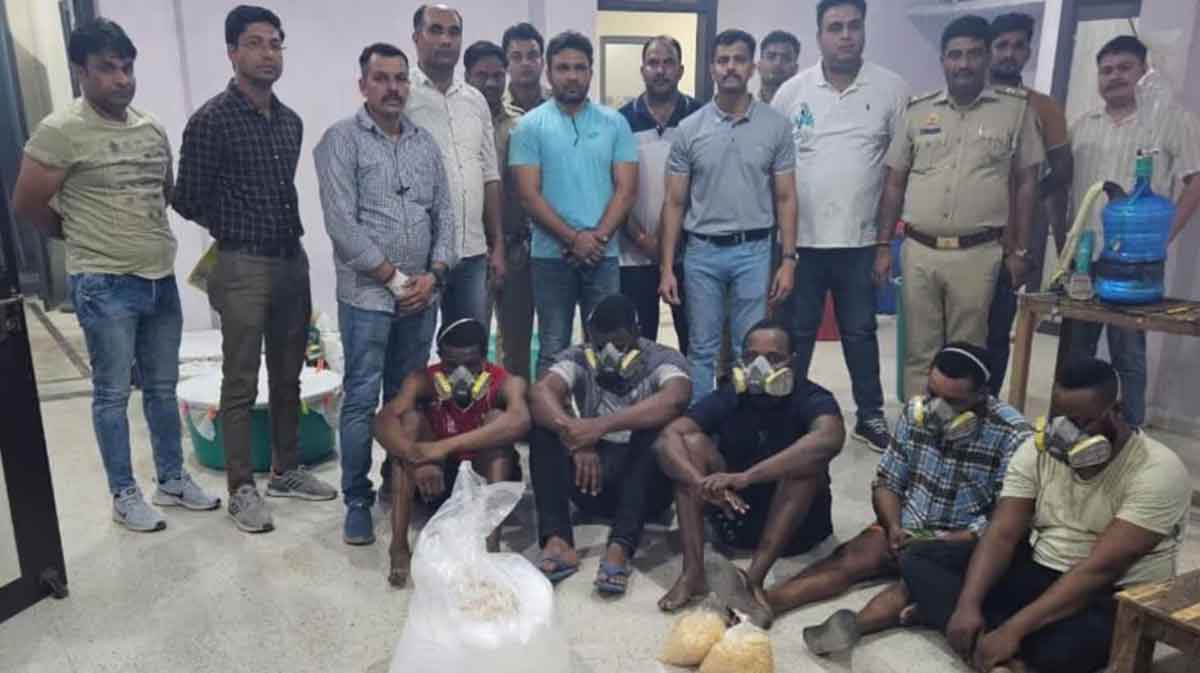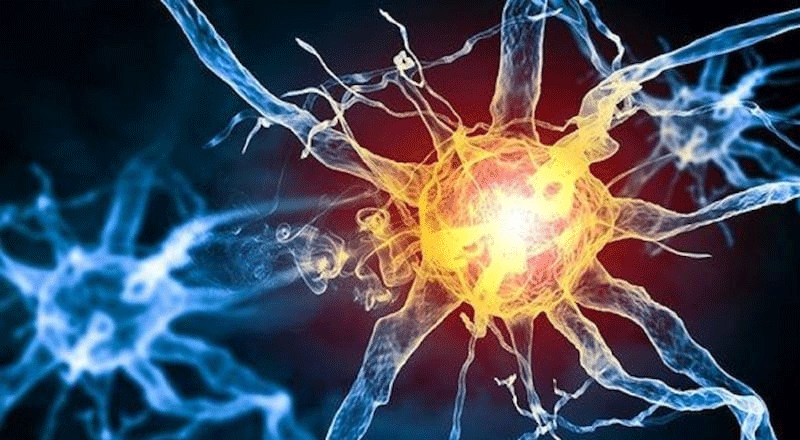A Major Meth Operation Uncovered
In a scene reminiscent of the popular TV show Breaking Bad, a joint operation by India’s Narcotics Control Bureau (NCB) and Delhi Police’s Special Cell led to a high-stakes raid on a clandestine methamphetamine lab in Noida’s Kasana Industrial Area. Authorities seized nearly 95 kilograms of meth in both solid and liquid forms, arresting four individuals involved in this sophisticated operation. The bust exposes a deep web of criminal collaboration involving local operatives, including a businessman, a Tihar jail warden, and even connections to the notorious Mexican cartel, Jalisco New Generation (CJNG). This raid marks the latest chapter in India’s ongoing battle against the growing synthetic drug trade.
High-Level Collaboration: A Network Rooted in Crime
The roots of the Noida drug operation run deep, stretching from Delhi’s business world to the infamous corridors of Tihar Jail. Investigators found that a Delhi-based businessman, arrested earlier on drug-related charges, and a Tihar jail warden met in prison, where they devised the drug operation. The two collaborators also brought a Mumbai-based chemist on board to oversee meth production. According to Gyaneshwar Singh, DDG (Operations) at the NCB, the quality of the meth was under the supervision of a Mexican cartel member, who had been stationed in Delhi specifically to oversee product standards.
This high-level collaboration involved obtaining specific chemical compounds, including acetone and red phosphorus, and importing drug-manufacturing equipment. The joint investigation by the NCB and Special Cell traced these components back to the Noida lab, where law enforcement seized additional supplies, such as methylene chloride and sodium hydroxide, commonly used in meth production.
A Cartel Connection: India’s Link to Jalisco New Generation
The international link revealed by this bust is particularly alarming. The cartel allegedly involved in this case, Jalisco New Generation (CJNG), is a feared criminal syndicate in Mexico. Known for brutal initiation practices, including cannibalism, CJNG reportedly began as an offshoot of the Milenio cartel, and today, it has expanded its reach globally. The cartel’s presence in India points to a shift in the country’s drug landscape, with international mafias seeing India as both a lucrative market and a convenient production base.
The Operation and Arrests
During the raid, officials detained four key players on-site. The suspects were taken before a Narcotic Drugs and Psychotropic Substances (NDPS) court, which granted NCB custody for further questioning. A fifth suspect, a known associate of the businessman, was apprehended soon after in Delhi’s Rajouri Garden. All suspects are now in custody, and authorities are delving into their financial and operational links.
Additionally, confiscated items from the lab included premium-grade ethanol, toluene, and imported equipment for synthesizing drugs. Investigations are now focusing on mapping both forward and backward linkages of the operation, tracing financial trails, and identifying assets acquired through this illegal trade.
Rise in Synthetic Drug Labs: A Growing Crisis
This Noida raid is not an isolated incident but the latest in a string of meth lab busts across India, indicating a surge in synthetic drug manufacturing within the country. The NCB has dismantled similar labs in Gandhinagar and Amreli in Gujarat, Jodhpur and Sirohi in Rajasthan, and Bhopal in Madhya Pradesh. The Bhopal operation alone yielded over 900 kg of meth and 7,000 kg of precursor chemicals. The increase in synthetic drug labs reflects a strategic shift by drug mafias, who favor smaller labs hidden in industrial zones, as these make it easier to avoid detection and reduce waste, emissions, and other traces of their activities.
Implications for India’s Drug Landscape
The Noida meth lab bust is a sobering reminder of the evolving drug crisis in India, with synthetic drug labs becoming more commonplace across the country. Not only are these labs easier to conceal, but the high demand for methamphetamine and mephedrone has made India an appealing hub for domestic and international cartels. Furthermore, synthetic drugs like meth can be produced in relatively small quantities, allowing cartels to minimize the risk of detection while maximizing profits. The rising influence of foreign cartels also shows that India’s drug enforcement agencies are facing an increasingly complex fight against well-resourced, globally connected criminal networks.
A Resilient but Ongoing Battle
The recent Noida bust underscores the importance of India’s law enforcement agencies remaining vigilant as the country becomes a target for both local and international drug syndicates. The NCB’s successful raid and the arrests are promising steps in combating the spread of synthetic drugs, but the rise of smaller meth labs and international cartel involvement show that the battle is far from over. With the number of clandestine labs increasing and cartels finding innovative ways to operate, India’s agencies must continuously adapt, coordinate, and intensify efforts to tackle this sophisticated drug menace.
(With inputs from agencies)





